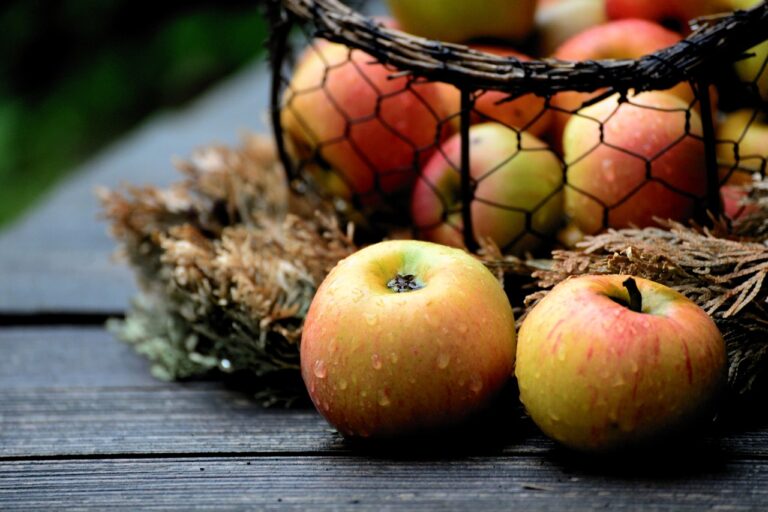Trends in Sustainable Poultry Farming
betbhai9 com whatsapp number, playexch in live login, lotus365 vip login:As concerns about sustainability and environmental impact continue to grow, the poultry farming industry is shifting towards more eco-friendly and socially responsible practices. Sustainable poultry farming focuses on reducing waste, conserving resources, and promoting animal welfare. In this article, we will explore some of the trends in sustainable poultry farming that are gaining popularity in the industry.
Rotational Grazing
One of the key trends in sustainable poultry farming is rotational grazing. This practice involves moving poultry to different areas of pasture regularly, allowing the land to recover between grazing sessions. Rotational grazing helps prevent overgrazing, promotes soil health, and reduces the need for synthetic fertilizers.
Organic Feed
Another important trend in sustainable poultry farming is the use of organic feed. Organic feed is made from ingredients that are free from synthetic pesticides, herbicides, and genetically modified organisms. By feeding poultry organic feed, farmers can ensure that their birds are not exposed to harmful chemicals and antibiotics.
Pasture-Based Farming
Pasture-based farming is a trend that is gaining popularity in the poultry industry. This practice involves raising poultry on pasture rather than in confinement. Pasture-based farming allows birds to exhibit natural behaviors, such as pecking and scratching, and provides them with access to fresh grass and insects. This results in healthier, happier birds and higher-quality meat and eggs.
Integrated Pest Management
Integrated pest management is a sustainable approach to controlling pests on poultry farms. This method involves using a combination of techniques, such as crop rotation, habitat manipulation, and biological control, to manage pests without the use of synthetic pesticides. By implementing integrated pest management practices, farmers can reduce their reliance on chemical pesticides and protect the environment.
Water Conservation
Water conservation is a critical aspect of sustainable poultry farming. By implementing water-saving practices, such as installing drip irrigation systems, rainwater harvesting systems, and water-efficient equipment, farmers can reduce their water usage and protect local water sources. Conserving water also helps reduce greenhouse gas emissions associated with water treatment and distribution.
Energy Efficiency
Energy efficiency is another important trend in sustainable poultry farming. By using energy-efficient equipment, such as LED lighting, solar panels, and heat recovery systems, farmers can reduce their energy consumption and lower their carbon footprint. Energy-efficient practices not only benefit the environment but also help farmers save money on their energy bills.
Animal Welfare
Animal welfare is a core principle of sustainable poultry farming. Farmers are increasingly focusing on providing their birds with a high standard of care, including access to clean water, proper nutrition, and comfortable living conditions. By prioritizing animal welfare, farmers can produce healthier, higher-quality poultry products and build consumer trust.
FAQs
Q: How can consumers support sustainable poultry farming?
A: Consumers can support sustainable poultry farming by choosing poultry products that are certified organic, pasture-raised, or free-range. By purchasing products from farms that prioritize sustainability and animal welfare, consumers can help drive demand for more eco-friendly farming practices.
Q: Why is sustainable poultry farming important?
A: Sustainable poultry farming is important for several reasons. It helps protect the environment by reducing greenhouse gas emissions, conserving resources, and promoting biodiversity. Additionally, sustainable farming practices can improve animal welfare, produce healthier food products, and support local communities.
Q: What are some challenges faced by sustainable poultry farmers?
A: Some challenges faced by sustainable poultry farmers include higher production costs, limited access to resources, and regulatory barriers. However, many farmers are finding creative solutions to overcome these challenges and are demonstrating that sustainable poultry farming is not only possible but also beneficial for the industry as a whole.
In conclusion, sustainable poultry farming is a growing trend in the industry that offers numerous benefits for the environment, animals, and consumers. By adopting practices such as rotational grazing, organic feed, and pasture-based farming, farmers can produce high-quality poultry products while minimizing their impact on the planet. With continued innovation and consumer support, sustainable poultry farming is poised to become the standard in the industry.







